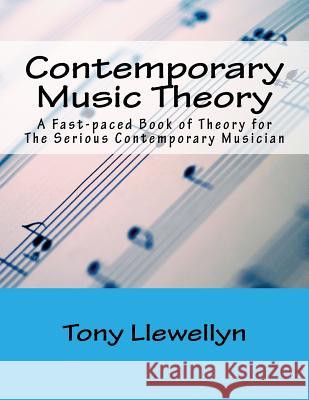Contemporary Music Theory: A Fast-paced Book of Theory for The Serious Contemporary Musician » książka
Contemporary Music Theory: A Fast-paced Book of Theory for The Serious Contemporary Musician
ISBN-13: 9781482750089 / Angielski / Miękka / 2013 / 102 str.
If you've been looking for a book on music theory that doesn't require you to learn Italian or rules of harmony that don't relate to most modern music, then this is the book for you. Contemporary Music Theory does not assume that you can read music or that you even want to. Many modern musicians have a highly developed ability to play by ear as well as advanced manual dexterity. Yet, by themselves these are not enough. These abilities need to be coupled with an understanding of contemporary music theory that provides the framework on which to build great playing techniques. Starting at the very basics of scale construction, Contemporary Music Theory begins by teaching you how different keys are formed, as well as key signature patterns. Building on that information, you will learn about scale degrees and chord construction including majors and minors (and their compounds), augmented and diminished chords, half-diminished, and more. The difference between diatonic and chromatic chords is then explained as understanding this will form an important foundation in improvisation theory. From there, various kinds of chord substitution are explained, including extended chords, cut chords, altered chords and progressional substitutes. Finally, learn how to apply improvisation theory in your playing as Contemporary Music Theory explains how the various scales - including major, minor, pentatonic, blues, modal scales, and more - are applied to various chord structures. If you want a good understanding of modern music theory, this book is essential.
Zawartość książki może nie spełniać oczekiwań – reklamacje nie obejmują treści, która mogła nie być redakcyjnie ani merytorycznie opracowana.











